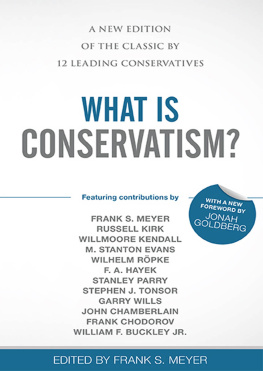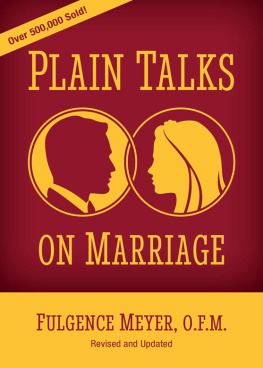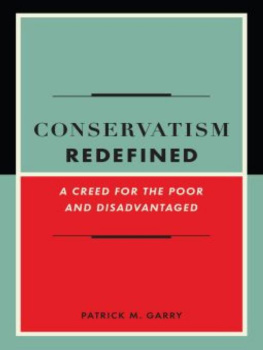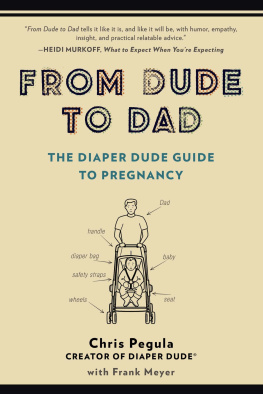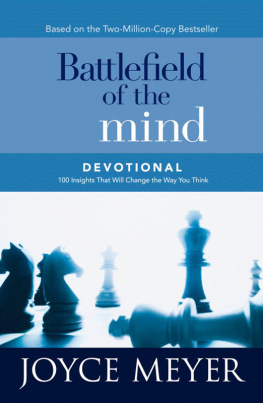Foreword to the new edition
by Jonah Goldberg
What Is Conservatism? is one of my favorite books, despite being what you might call a successful failure. I dont mean commercially. Frankly, I have no idea how well this book sold, but going by the history of philosophical anthologies, I think its safe to assume that it never threatened to hit the bestseller lists. On the other hand, more than a half century later it remains an oft-cited and significant book in its field. Given that most anthologies arent read even by their contributors, you could argue that its a giant of the genre.
But what I mean by success and failure is something different altogether. First, it succeeds because it is a wonderful book. More important, it served a high purpose. It is The Federalist Papers of American conservatism. Like the patriots who convened in Philadelphia to hammer out a new charter for a new nation, the contributors to this book laid out a new consensus for a new movement. That effort was led intellectually by Frank Meyer and politically by my old boss William F. Buckley Jr. (whose intellectual contributions to the effort were prodigious as well).
The project, commonly called fusionism, was laid out most forcefully in Meyers In Defense of Freedom: A Conservative Credo (1962). He argued that a love and respect for freedom must unite all factions on the right. To the traditionalists he argued that virtue not freely chosen isnt virtuous. To the libertarians (or, to use an older word, individualists), he explained that individualism absent morality is an invitation to chaos, and chaos is, in turn, an invitation to oppression of one kind or another. Meyer writes in these pages that truth withers when freedom dies, however righteous the authority that kills it; and free individualism uninformed by moral value rots at its core and soon brings about conditions that pave the way for surrender to tyranny.
Meyer did not lack for critics. Murray Rothbard condescended that Meyer was a libertarian manqu who failed to unite the two camps. Meyers friend and colleague Brent Bozell, a Catholic traditionalist, found fusionism (a term Bozell coined) a failure as well, though for different reasons. Bozell argued that the purpose of politics is to promote not liberty but virtue. And when the two are in conflict, virtue must triumph. (Perhaps thats why Bozell left National Review to found his own ultramontane Catholic magazine, called Triumph.)
Although I still consider myself a fusionist, I agree with the critics that, philosophically, fusionism has its flaws, or at least vulnerabilities. Taking his credo to its logical conclusion, the fusionist must always err on the side of permitting everything, or almost everything, in order to allow every individual to make a freeand therefore virtuouschoice. But is it really true that a virtuous society cannot consider some questions settled? Isnt the whole point of conservatism to pocket the moral victories of the past and to conserve them, at least for as long as possible? Is it conservative to leave such victories like chips on the table to be wagered on a hunch that society will make the right choice with every new deal of the cards? Must we debate the merits of pedophilia, incest, bestiality, cruelty to animals, etc., every generation?
But Meyer is surely correct that freedom cannot be sustained in a society that abandons traditional moralityan argument that vexed many of his purer libertarian friends. Even the free market is heavily dependent on values, customs, and mores that are upstream from capitalism. As Friedrich Hayek said, Capitalism presumes that apart from our rational insight we possess a traditional endowment of morals, which has been tested by evolution but not designed by our intelligence. Social trust, respect for law, tolerance for delayed gratification: these things are all essential to a free economy, but they are not simply economic phenomena. In every generation, we see capitalism threatened not by dangerous economic arguments but by seductive moral claims. Left to defend themselves against strictly economic attacks, free-market economists would prevail. Proponents of the minimum wage cannot make a better case empirically or theoretically, but they can do so emotionally. As Friedrich Hayek and Milton Friedman learned, the true defender of free markets, and of liberty itself, must go outside the walled citadel of capitalism and fight on the muddier battlefields of morality.
Is ever more liberty the best tool for sustainingnever mind restoringa virtuous and free moral order? This is certainly not how we treat our children. Properly raised children start out not in a world of maximized liberty but in a world of maximized order, and that order is loosened only as they grow more worthy of being trusted with liberty. Children brought up in a world where freedom is the highest value can turn out rotten.
Now, obviously, one does not want to fall into the rhetorical trap of comparing adult citizens of the United States to children. But those adult citizens did begin their lives as children. And children who grow up in a larger society where everything is permitted will turn out quite differently from children raised in a society where some things are not permitted.
A decent society can tolerate a fair number of moral free riders, people who reject the lessons of the past while enjoying the prosperity and order provided and sustained by others. But eventually the logic of the tragedy of the commons kicks in. Every civilization must take seriously how the next generation shall be civilized.
Children arent the only ones who need order and authority. Civilized man, Russell Kirk writes in these pages, lives by authority. He continues: Without some reference to authority, indeed, no form of human existence is possible. Without just authority and respected prescription, the pillars of any tolerable civil social order, true freedom is not possible. One can think of countless scenarios where the last thing required to solve a problem or end a crisis is more freedom. During the Baltimore riots in the spring of 2015, for example, Mayor Stephanie Rawlings-Blake explained that, to those who wished to destroy, she gave space to do that.
On the other hand, the claim that order and virtue should always prevail has its own set of problems. These problems are probably more familiar to most readers, because our educational system and popular culture have been at war with nearly all forms of traditional authority for decades. We are taught to respond who are you to judge? at the slightest provocation. We distrust figures who lecture us about virtue and rebel against anyone who might impose order we find inconvenient, never mind morally undesirable. This instinct often takes on a partisan pigmentthe lefts definitions of tyranny and the rights drift further from each other by the daybut the arguments against government-imposed virtue still seem less necessary to rehearse, particularly when so many contributors to this volume make them better than I could.
Conservatism, Realism, and Gratitude


